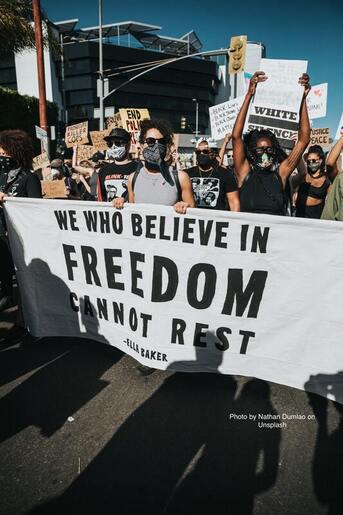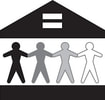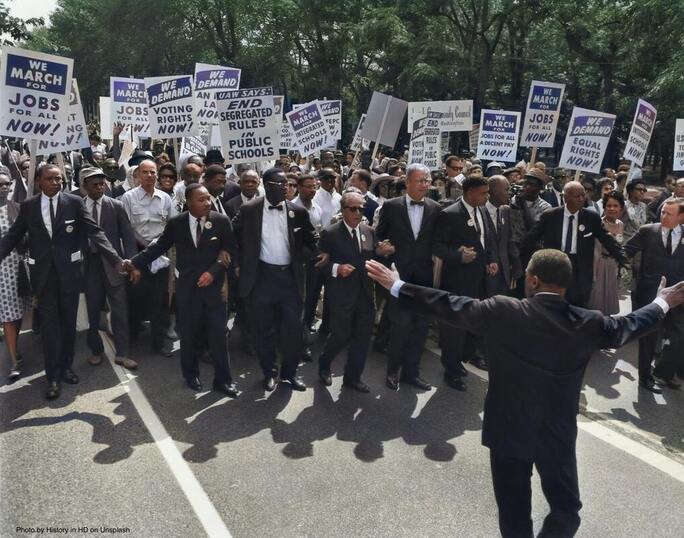 As the day for celebrating Dr. Martin Luther King approaches, we have an opportunity to reflect on the past year with its many challenges – from COVID, to the police brutality that ignited the BLM movement, to the recent events at the Capitol; all these events inform our future actions and strategies. Following Dr. King's assassination on April 4, 1968, and as the nation mourned him and angry riots raged in America's cities, President Lyndon Johnson pushed Congress to pass the Fair Housing Act. On April 11, 1968, seven days after Dr. King’s death, the Federal Fair Housing Act was finally enacted into law – a lasting legacy of a man who had put the issue of fair housing firmly on the map in 1966 with the Chicago freedom movement, and who had been at the forefront of the struggle for racial equality in the United States. More than 50 years later, COVID-19 has highlighted the same racial inequities present in housing opportunities and accumulation of wealth. As the Black Lives Matter movement gained momentum over the past year, so too did the white supremacist movement, something made abundantly clear on January 6, as our Capitol was overrun by rioters attempting to overturn the results of the 2020 presidential election and the Confederate flag flew inside the Capitol. In these unprecedented times, I’m reminded of Dr. King’s insistence on peaceful protests, and these words when he accepted the Nobel Peace prize in 1964: “Violence as a way of achieving racial justice is both impractical and immoral. I am not unmindful of the fact that violence often brings about momentary results. Nations have frequently won their independence in battle. But in spite of temporary victories, violence never brings permanent peace. It solves no social problem: it merely creates new and more complicated ones. Violence is impractical because it is a descending spiral ending in destruction for all. It is immoral because it seeks to humiliate the opponent rather than win his understanding: it seeks to annihilate rather than convert. Violence is immoral because it thrives on hatred rather than love. It destroys community and makes brotherhood impossible. It leaves society in monologue rather than dialogue. Violence ends up defeating itself.” These are fitting words for where we now find ourselves. I, along with our agency, recommit ourselves to the work we've undertaken to serve our community. In 2020, our agency began internally examining how to incorporate more anti-racist values into our policies, procedures, and individual beliefs. We are continuing to reflect on and implement them in 2021. We are committed to supporting the Black Lives Matter movement. Our advocacy with our local government agencies and recipients of federal housing to understand and commit to the mandate to affirmatively further fair housing – that is, actively address and work to eliminate housing discrimination and segregation – is ongoing. We redoubled our efforts to support and enforce our civil rights laws that the current administration did its best to undermine, and joined a federal lawsuit challenging the U.S. Department of Housing and Urban Development’s recent reversal of long-standing fair housing protections. There is hope: the new administration has clearly signaled its commitment to governance and to civil rights. That has been made clear through its choice of Marcia Fudge as the Secretary of HUD and Merrick Garland as U.S. Attorney General. I couldn’t be prouder of our staff as they recommit themselves daily to our mission and to help victims of housing discrimination. In the coming weeks and months, we will learn more about how many or to what extent our political leaders will attempt to curtail their previous commitments to racial equity. In the multiracial society we live in, we all have a part to play in continuing to push for racial equity and anti-racism. Thank you for your support and joining us in the peaceful struggle. Caroline Peattie Executive Director Fair Housing Advocates of Northern California
1 Comment
Peaceful protests are more valuable and more effective. These movements are what make a stand be heard. It makes volunteers and participants respect the law, but it will establish safety for all; being violent will only worsen the situation and not make any changes.
Reply
Leave a Reply. |
Archives
July 2024
|
|

TDD: (800) 735-2922
Se habla español We welcome our site visitors with content in Spanish and Vietnamese. En Espanol TIẾNG VIỆT |
|


